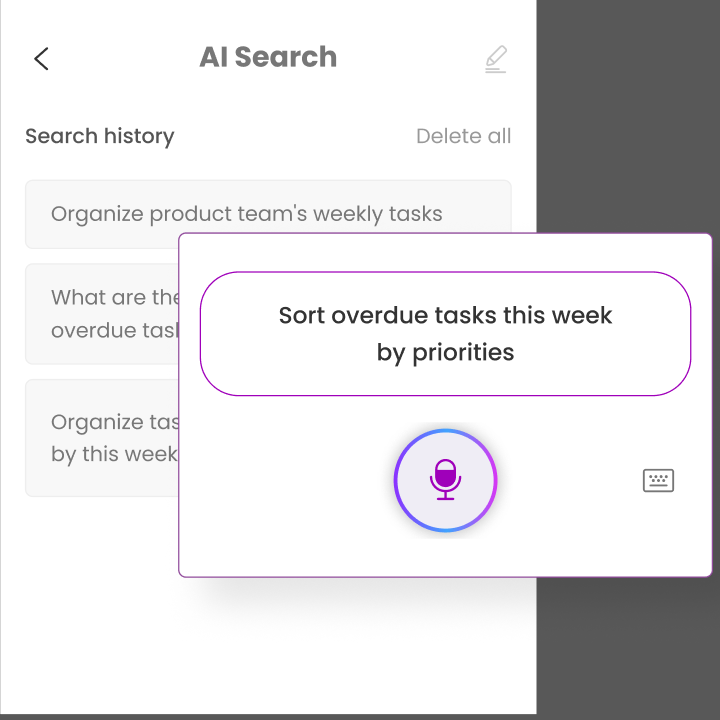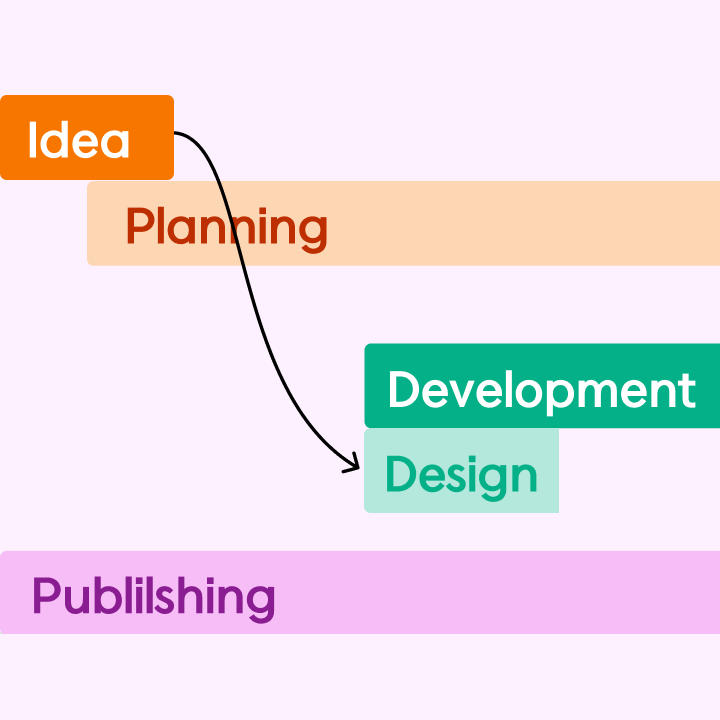The field of project management is experiencing a significant transformation. As artificial intelligence (AI) becomes more advanced and accessible, project managers in various industries are discovering how AI can streamline workflows, improve decision-making, and achieve remarkable efficiency. From automating routine tasks to offering predictive insights, AI is not just changing project management—it’s reshaping the possibilities of project delivery.
Whether you lead a small team or oversee large-scale programs, understanding how to utilize AI in project management is crucial for maintaining a competitive edge. This comprehensive guide delves into the most effective AI tools, practical implementation strategies, and emerging trends that will influence the future of project management.
What Is AI in Project Management?
AI in project management uses advanced technology to improve traditional methods. Unlike regular project management software that just organizes information, AI tools actively analyze data, predict outcomes, and provide smart recommendations.
One important feature of AI in project management is its ability to learn from past projects. Machine learning algorithms look at historical data to find patterns and predict possible risks or delays. Natural language processing helps AI understand project communications, pull out key information from updates, and even create reports automatically. Predictive analytics allow project managers to foresee resource needs, budget requirements, and timeline changes based on the current progress of the project.
AI works alongside human project managers instead of replacing them. While AI is great at handling large amounts of data and spotting trends, human managers bring strategic thinking, engage with stakeholders, and solve problems creatively. This teamwork lets project teams focus on important tasks while AI takes care of routine analysis and administrative work.
Modern AI project management tools can analyze information from many sources at once, including team communications, task completion rates, resource usage, and outside factors. This provides project insights that would be too complex for humans to calculate manually.
Benefits of AI in Project and Program Management
Smarter Resource Allocation
AI algorithms assess team capacity, skill sets, and availability to optimize resource allocation across multiple projects. By analyzing historical performance data and current workload metrics, AI can recommend effective team compositions and identify potential resource conflicts before they disrupt project timelines. This intelligent resource management reduces burnout, boosts productivity, and ensures that the right people are assigned to the right tasks at the right time.
Automated Task Scheduling and Prioritization
Traditional project scheduling often relies on manual input and guesswork. AI-powered scheduling considers multiple variables simultaneously, including task dependencies, team availability, historical completion times, and shifting priorities. The system continuously adjusts schedules based on real-time progress updates, automatically reprioritizing tasks when delays occur and suggesting alternative approaches to maintain critical timelines.
Real-Time Risk Detection
AI’s pattern recognition capabilities make it invaluable for identifying project risks before they escalate into critical issues. By analyzing communication patterns, task completion rates, budget variances, and team sentiment, AI can flag potential problems early in the project lifecycle. This proactive approach allows project managers to implement mitigation strategies before risks affect project success, significantly lowering the chances of project failure.
Enhanced Forecasting and Budgeting
Predictive analytics offer exceptional accuracy in project forecasting. AI evaluates historical project data, current performance metrics, and external factors to generate realistic timeline and budget projections. This capability helps organizations make informed decisions about project investments, resource planning, and stakeholder commitments. Accurate forecasting also strengthens client relationships by setting realistic expectations and delivering on promises.
Data-Driven Decision Making
AI transforms extensive project data into actionable insights. Instead of relying on intuition or incomplete information, project managers can base their decisions on thorough data analysis. AI-generated dashboards and reports highlight trends, identify improvement opportunities, and provide evidence-based recommendations for optimizing project performance.
Virtual Project Assistants
AI-powered virtual assistants can manage routine project management tasks, from scheduling meetings to updating project status reports. These intelligent systems can answer team questions, provide project updates, and facilitate communication between stakeholders. Virtual assistants allow project managers to focus on strategic activities while ensuring that administrative tasks are completed consistently and accurately.
Use Cases of AI in Project Management
AI in Agile Project Environments
Agile methodologies greatly benefit from AI integration. AI can analyze sprint velocity, predict story completion times, and identify obstacles before they affect sprint goals. Machine learning algorithms examine team performance patterns to suggest optimal sprint planning strategies and identify opportunities for continuous improvement. AI also enhances retrospectives by analyzing team communications and identifying recurring themes or concerns that might not emerge in traditional discussions.
AI for Enterprise PMOs
Project Management Offices (PMOs) overseeing multiple concurrent projects gain significant value from AI implementation. AI provides portfolio-level insights, identifying cross-project dependencies, resource conflicts, and strategic alignment issues. Enterprise AI systems can automatically generate executive dashboards, track KPIs across all projects, and deliver predictive analytics for portfolio performance. This comprehensive view enables PMOs to make strategic decisions about project prioritization, resource reallocation, and investment strategies.
Generative AI for Status Reports and Updates
Generative AI transforms project communication by automatically creating status reports, meeting summaries, and stakeholder updates. These systems analyze project data, team communications, and progress metrics to generate coherent, comprehensive reports that maintain consistency across all project communications. This capability ensures that stakeholders receive timely, accurate information while reducing the administrative burden on project managers.
Top AI Project Management Tools for 2025
Morningmate – AI-Enhanced Workflow Collaboration
Morningmate leverages AI to enhance its collaboration platform, providing smart task suggestions, automated workflow optimization, and predictive project insights. The AI analyzes team communication patterns and work habits to recommend process improvements and pinpoint potential bottlenecks before they hinder productivity.
ClickUp – Intelligent Writing and Summarization
ClickUp offers AI features that assist with project documentation, automatically summarize meetings, and create tasks from natural language inputs. Its AI can generate project templates, recommend task assignments based on team expertise, and provide timeline estimates based on historical data.
Asana – Intelligent Automation with Asana Intelligence
Asana Intelligence delivers proactive project insights, automates task routing, and suggests deadlines intelligently. The system identifies projects at risk of missing deadlines and offers actionable recommendations to get back on track. Asana’s AI also streamlines routine project management tasks, reducing manual effort and enhancing consistency.
Forecast – AI for Resource and Capacity Planning
Forecast excels in AI-driven resource management, offering precise capacity planning, intelligent project scheduling, and automated time tracking. Its AI analyzes team performance data to optimize resource allocation and accurately predict project outcomes.
Motion – Predictive AI for Scheduling
Motion utilizes AI to create optimal schedules by assessing task priorities, deadlines, and team availability. The platform continuously adjusts schedules based on changing circumstances, ensuring teams focus on critical tasks while maintaining realistic timelines.
Trello – AI for Task Prioritization
Trello’s AI capabilities emphasize intelligent task prioritization and workflow optimization. The system evaluates board activity and team collaboration patterns to suggest process improvements and identify opportunities for greater efficiency.
Notion – AI for Content Generation and Summarization
Notion’s AI features include intelligent content generation, automatic summarization of project documents, and natural language querying of project data. These tools make project information more accessible and reduce the time needed to create and maintain documentation.
How to Integrate AI into Your Project Management Workflow
Step 1: Identify Repetitive and Data-Intensive Tasks
Start by reviewing your current project management processes to pinpoint tasks that are repetitive or data-heavy. Common examples include status reporting, resource allocation, risk assessment, and timeline updates. These tasks often consume significant time with limited strategic value, making them ideal candidates for AI automation.
Step 2: Select the Right AI-Integrated PM Tool
Choose AI project management tools that fit your team’s specific needs and existing workflows. Consider factors like integration capabilities, ease of use, and scalability for future growth. Evaluate tools based on their AI features that will deliver the most immediate benefits to your projects.
Step 3: Train Your Team for AI Collaboration
Successful AI implementation requires team buy-in and proper training. Develop programs that help team members understand how AI enhances their work rather than replaces it. Focus on teaching them how to interpret AI insights, when to trust automated recommendations, and how to provide feedback to improve AI performance over time.
Step 4: Monitor Performance and Make Adjustments
Establish metrics to assess the impact of AI integration on project performance. Track improvements in areas like timeline accuracy, resource utilization, risk mitigation, and team productivity. Use this data to refine AI configurations, adjust automated processes, and identify further opportunities for AI implementation.
Challenges and Considerations
AI Bias and Data Quality
AI systems rely on the quality of the data they are trained on. Poor historical data or biased datasets can lead to inaccurate predictions and flawed recommendations. Organizations must invest in data quality initiatives and conduct regular bias audits to ensure reliable insights. This includes establishing data governance protocols and routinely reviewing AI outputs for potential bias or inaccuracies.
Over-Reliance on Automation
While AI can greatly enhance project management efficiency, excessive dependence on automated systems can diminish human judgment and critical thinking skills. Project managers should retain the ability to override AI recommendations when human insight suggests alternative approaches. Finding the right balance between automation and human oversight is essential for long-term success.
Privacy and Compliance
AI systems often require access to sensitive project data, team communications, and performance metrics. Organizations must ensure that AI implementations comply with privacy regulations, industry standards, and internal governance requirements. This includes establishing clear data usage policies, implementing appropriate security measures, and maintaining transparency about how AI systems utilize project information.
The Future of AI in Project Management
Autonomous Project Tracking
Future AI systems will enable fully autonomous project monitoring, automatically updating project status, identifying risks, and adjusting plans without human intervention. These systems will integrate with IoT devices, external data sources, and communication platforms to provide comprehensive project oversight with minimal manual input.
AI-Driven Stakeholder Communication
Advanced AI will tailor stakeholder communications based on individual preferences, roles, and information needs. These systems will automatically generate customized reports, schedule appropriate touchpoints, and even conduct preliminary stakeholder meetings using conversational AI interfaces.
Predictive Portfolio Management
Enterprise AI systems will offer sophisticated portfolio optimization, automatically balancing project priorities, resource allocation, and strategic objectives. These systems will consider market conditions, organizational capabilities, and strategic goals to recommend optimal project portfolios and resource investments.
Final Thoughts: Is AI Right for Your Project Team?
Integrating AI into project management presents a significant opportunity for organizations ready to embrace technological advancements. While implementation requires careful planning and ongoing commitment, the benefits of improved efficiency, enhanced decision-making, and predictive capabilities make AI adoption increasingly vital for competitive project delivery.
Success with AI project management tools hinges on selecting the right solutions, properly training teams, and maintaining appropriate oversight of automated processes. Organizations that thoughtfully implement AI while preserving human judgment and strategic thinking will gain substantial advantages in project success rates, team productivity, and stakeholder satisfaction.
Ready to transform your project management with AI? Start by evaluating your current processes and identifying areas where AI can deliver immediate value. Choose tools that align with your team’s needs and begin with pilot implementations to demonstrate success before scaling across your organization.




